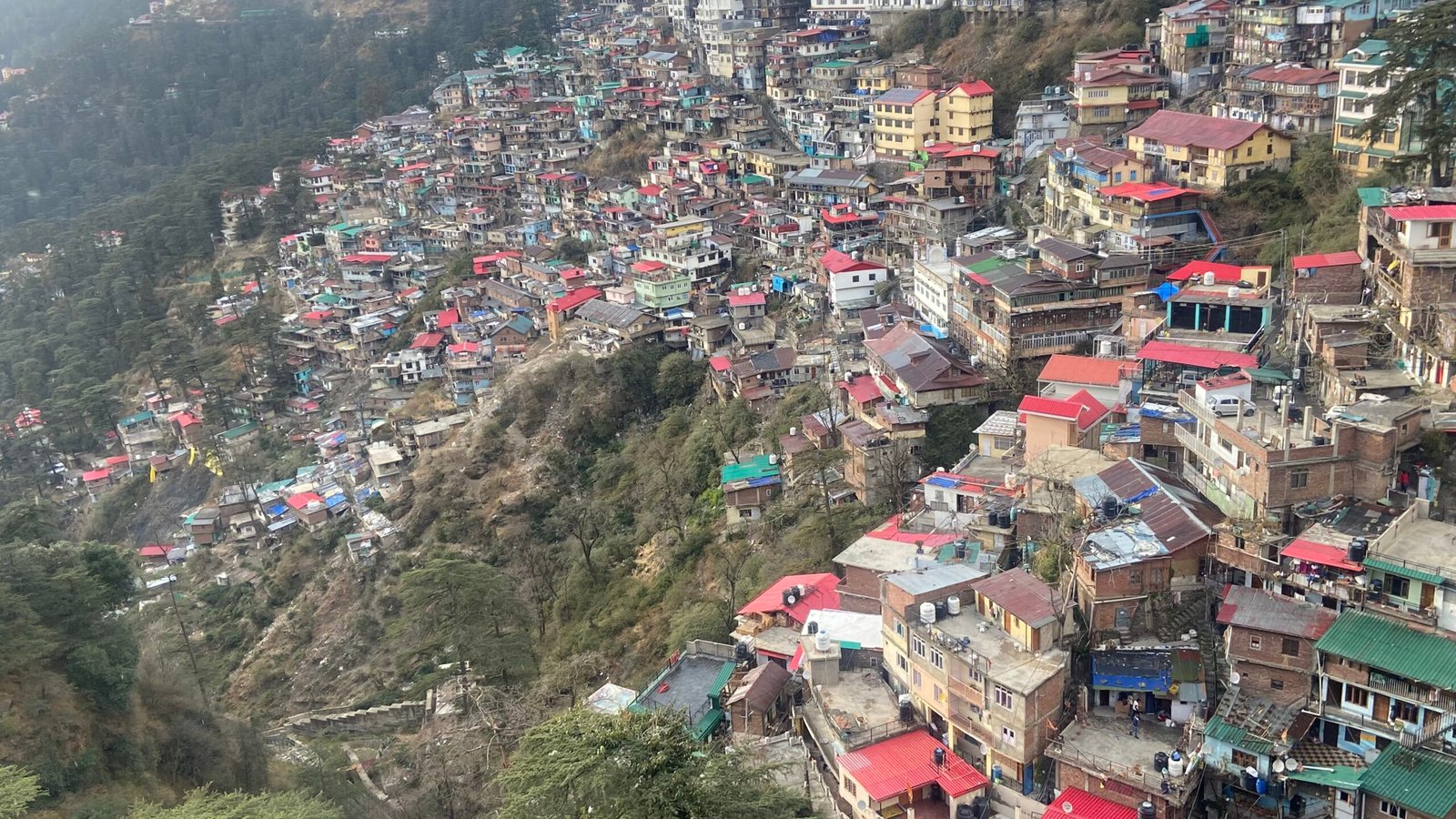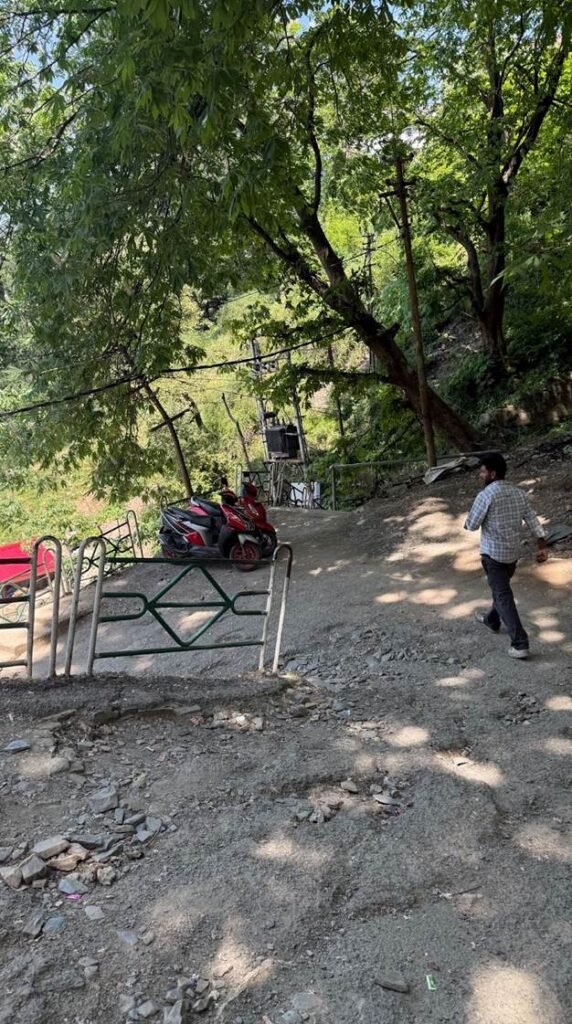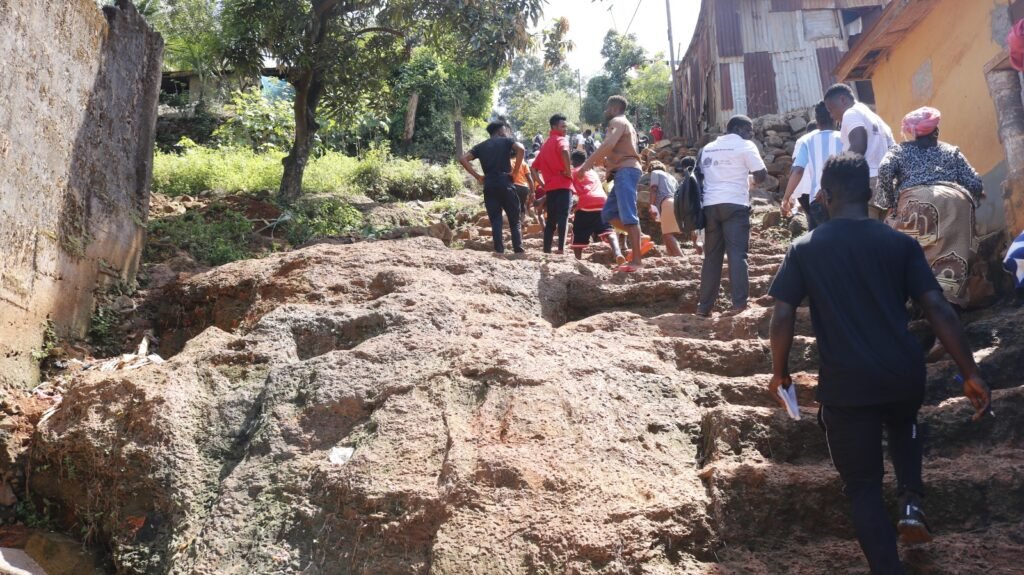When an informal settlement has no PHC
Yetika Dolker

As a public health professional, I have worked in the remote and rural areas of Lahaul-Spiti and Kinnaur in Himachal Pradesh to Udaipur in Rajasthan and in the plains of Bihar. I now with the Urban SHADE project with urban marginalised settlements in Shimla. Urban and rural health care systems are worlds apart.
In rural and remote areas, reaching the facility is difficult because of extreme climate or rugged terrain. Often there is a lack of trained health personnel, or diagnostics or treatment provision in these areas.
In urban areas, the public health challenges are different as I have discovered while working with informal settlements in Shimla, the capital of Himachal Pradesh. While urban areas have better access to advanced healthcare facilities, trained healthcare personnel and technology, the most basic level of health care is often lacking. Especially for people who need it most- the urban poor who live in informal settlements. People here are also more vulnerable to diseases as they lack access to safe drinking water, sanitation, good nutrition. Climate change and its effects also affect these vulnerable persons more.
Hidden health risks
In Shimla extreme rains, landslides, flooding, treefalls and rock falls are common during the monsoon. The Urban SHADE project works in Krishna Nagar settlement and Idgah colony in Ruldu Bhatta. Both are informal settlements, perched atop the edges of hills making them even vulnerable to landslides and floods. A major landslide in Krishna Nagar in 2023, felled an entire slaughterhouse in the colony, and killed at least two persons.
The houses here are often overcrowded, with poor ventilation, sometimes stinking due to garbage. There is barely any sanitation here.
“Dog’s potty is everywhere. Walking around it is like playing stapu (hopscotch). In the rains, the muck gets inside the shoes. What to say. We live in such filth,” said a woman who lived in Krishna Nagar in a focus group discussion (FGD).
“It appears that all the filth from the city comes and collects here. The gutters are open and flowing. Walking in the pathways makes you feel dirty,” woman from Krishna Nagar said.
Public washrooms remain dirty, and women in these colonies say they suffer from pelvic infections as a result. The water supply is often contaminated, and people say they get gastrointestinal diseases as a result.

“When there is a water cut, often the water supply is contaminated. We have heard of jaundice cases in many houses in those periods,” said a woman from Idgah colony.
Residents here complain of deliberate neglect by municipal authorities.
“Why do you think other areas in the city are not so dirty, madam,” asked a woman from Krishna Nagar. “The other areas in the city are so clean, and neat. It appears that all the filth from the city comes and collects here. The gutters are open and flowing . Walking in the pathways makes you feel dirty.”
No PHC in the settlements
To top all these existing health problems, there is no subcentre or primary health care centre (PHC) within both these settlements.
A PHC or dispensary is the first point of contact in any health system. A strong and comprehensive primary health care facility can improve the healthcare access for the people and reduce the load in tertiary hospitals, not just by treating ailments, but also with preventive and promotive health care.
Even though Shimla’s medical college and zonal hospital are within 5-6 kms from these two settlements, the residents are compelled to go to these hospitals even for small health issues or ailments that can be tackled at primary health care level such as diabetes.
There are many persons in these colonies who suffer from chronic ailments such as hypertension, and diabetes or from respiratory illnesses such as tuberculosis, skin diseases and pain in bones and joints. They do not have motorable roads near their houses and must climb up several levels to reach the main road and catch a vehicle.

The residents of Krishna Nagar and Idgah colony are garbage collectors, daily wage labourers, and small vendors, many of whom are migrants from other states or within the state. Families lose one- or two-persons’ daily wages (if the patient needs an attendant), having to spend money on travel, and medicines. These factors make the visit to hospital daunting, often leading to late diagnosis or loss to follow-ups.
“Our elderly here have cases of blood pressure. Their blood pressure increases while they climb up the hill to reach hospital. We really need a dispensary here,” said a woman from Idgah colony.
Take the case of tuberculosis diagnosis and treatment. Usually, the diagnosis as well as treatment of regular TB cases can take place in a PHC in India. Patients are often sent by primary health workers such as Auxiliary Social Health Activist (ASHA) workers, or Auxiliary Nurse Midwife (ANM). But the absence of a PHC snaps the link between the community and public health systems.
An ASHA worker told us that a woman in her 50s died of TB last year in Idgah colony. She was diabetic that makes her more susceptible to the disease, and treatment tougher. By the time the lady sought proper treatment, it was too late. In Krishna Nagar, a 41-year-old man was diagnosed with TB did not to continue treatment in the government hospital, but wanted to consult private practitioner, presumably because it’s easier to access.
When we asked an official from Integrated Disease Surveillance Programme (IDSP) about the health specific data of Krishna Nagar and Idgah colony, he told us that they don’t have settlement specific data. The lack of PHC also stalls surveillance in these areas. Primary health workers who are usually attached to PHCs have no health institution to directly raise concerns.
Climate change
To top this, climate change effects pose a huge risk for people in these settlements. People here already dread every monsoon, as they are at risk of landslides. In Idgah colony, the trees around the colony threaten to crush their homes when it rains heavily. Their houses are always damp because of lack of ventilation.
In Ruldu Bhatta, the trees growing around the houses threaten to fall on them during the monsoon. Photo credit – Inayat Singh Kakar
People say that there are now mosquitoes and flies around, which was unheard of a few decades ago. This has only increased over the years, perhaps due to increasing temperatures.
“We did not have flies or mosquitoes in Krishna Nagar earlier.. Now due to weather change, and it has become hotter. There are so many flies because of all the garbage. Mosquitoes are also increasing. This is bound to increase disease here,” said a woman from Krishna Nagar.

Any episode of landslide, or treefall or rock falls during monsoon, affects not only the housing, livelihoods, nutrition, but also physical and mental health.
After 2023 landslide in Krishna Nagar, many of the residents of community have developed fear and anxiety and say they are not able to sleep during rains.
When we talked to a woman whose house collapsed in 2023 extreme rains incident. She said that she lost ‘everything” with that house and is not able to sleep.
“I got blood pressure. I go into depression. Before my house collapsed, I did not have sugar (diabetes). I now have sugar. My hands and legs both swell up because of tension,” said this woman.
Demand for PHC
Effective disease control or even preparedness is not possible without surveillance and response systems. One of the key essential elements to effective disease control is effective primary health care.
This has been a demand from the community too.
“It rains so much here. So many people fall sick after these bouts of rains. We wish for a hospital or dispensary close to our house,” said a woman from Idgah colony.
A new Primary Care Centre has been built in Krishna Nagar and will soon be operational. It had collapsed during a landslide more than a decade ago.

Early detection of potential outbreak and quick action in these regions is need of the hour. It needs to start from their homes, with primary health care. We cannot stop the extreme rains and its effects, but we can prepare the communities and prevent the preventable illnesses.



Beautifully articulated and effectively captured the health-related challenges in difficult terrains like Himachal Pradesh. There is still limited information available on the issues faced by informal urban settlements in hilly regions. I believe that establishing PHCs would only offer a partial solution. Interventions should begin with preventive measures such as ensuring access to safe and uncontaminated drinking water, along with creating awareness within communities to encourage better sanitation and hygiene practices. The municipal authorities could support these efforts, while government health departments could organize health camps as a cost-effective approach to address the curative side. It was an insightful read—thank you for sharing your perspective.
This is a very timely and insightful piece, Yetika. You have highlighted a critical but often overlooked gap—the absence of primary health care in informal urban settlements. While tertiary hospitals may be within reach in Shimla, the lack of a PHC means that preventive, promotive, and early diagnostic care is missing, leaving the most vulnerable communities exposed to avoidable risks. I particularly appreciate how you have linked health access with climate change, sanitation, and mental health—issues that are rarely discussed together but are deeply interconnected. Strengthening primary health infrastructure under the National Urban Health Mission, along with settlement-specific surveillance, is indeed essential to ensure equity in health care delivery. Thank you for drawing attention to this urgent need.